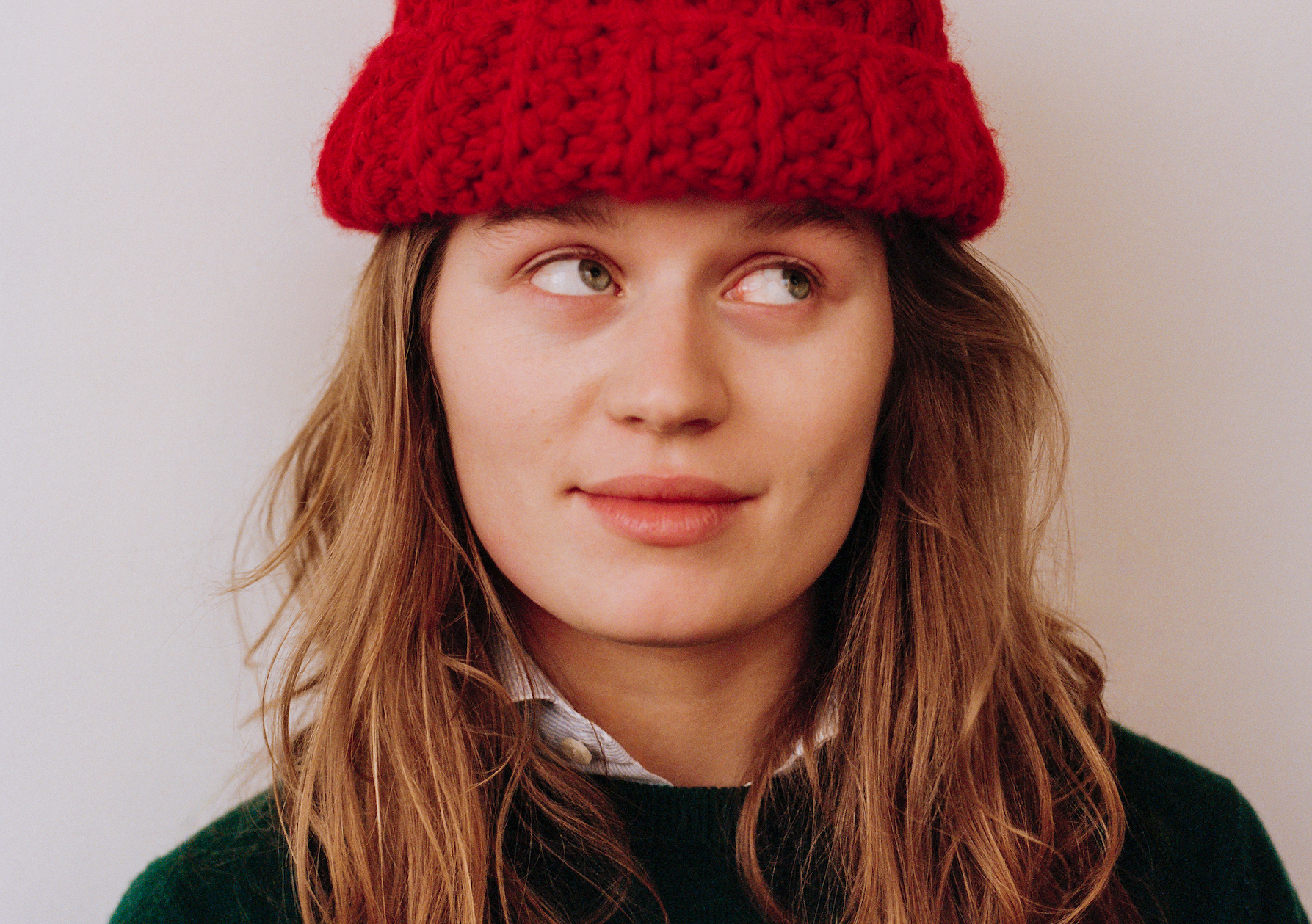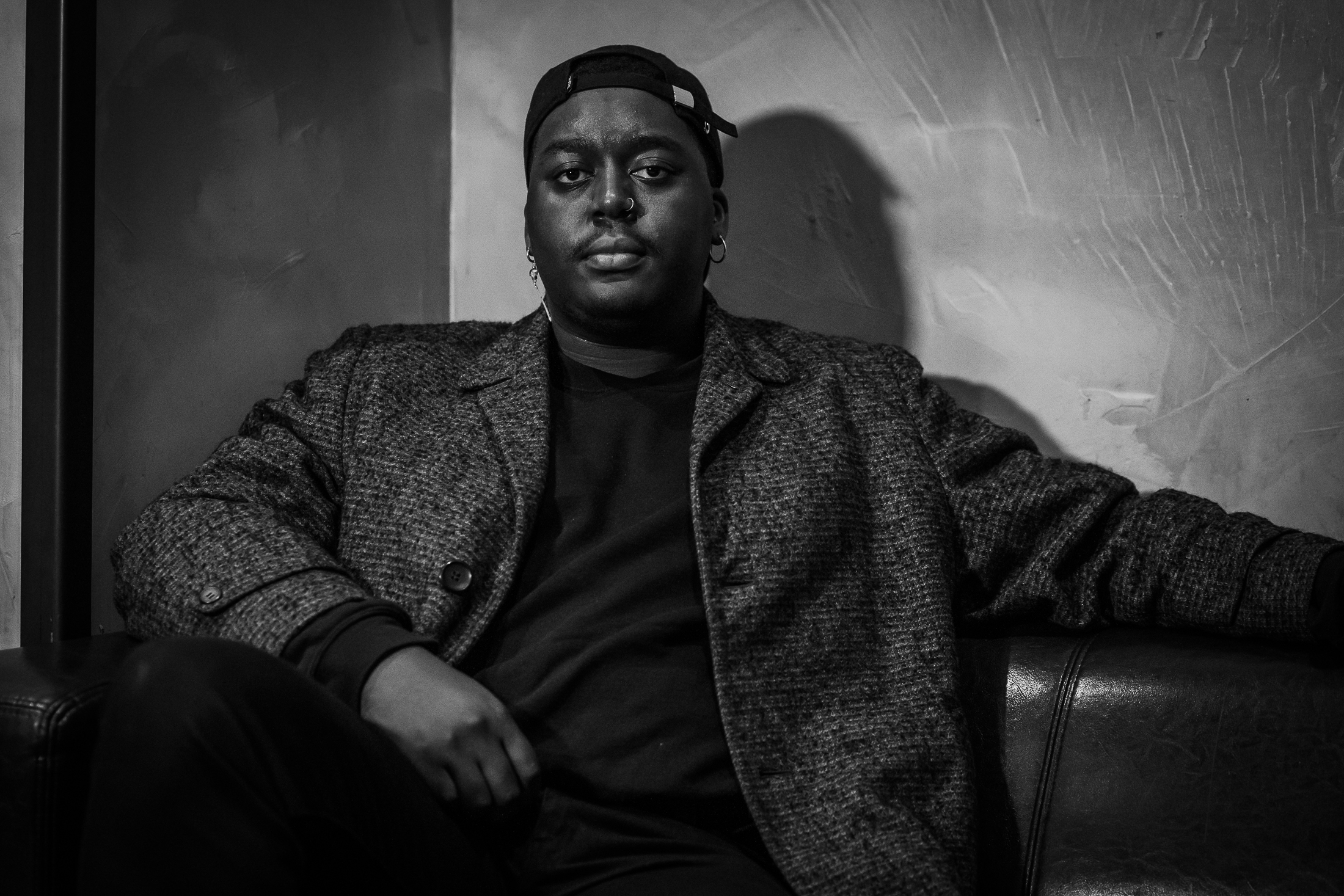Foto-© Sebastian Madej
Wie heißt es so schön bei Dinner For One: „Same procedure as every year!“ Der Mensch ist halt ein Gewohnheitstier…und so sind wir! Gutmenschlich, gefangen in den Zwängen der ständigen Wiederholung! Aber hey, bei uns bedeutet das im Bezug auf den Jahresbeginn bei Bedroomdisco.de, dass wir nach dem Blick zurück, in Form unserer Bestenlisten, unsere Glaskugel bemühen und alljährlich versuchen ein paar gewagte Aussagen zu tätigen, welche Bands und Künstler in den kommenden Monaten unsere Gehörgänge in steter Regelmäßigkeit beglücken werden. Ausverkaufte Konzerte und weltweiter Ruhm inklusive, oder so ähnlich…in Kurzform: unsere Bands To Watch 2020!
Jordan Mackampa ist ein britischer Sänger mit kongolesischen Wurzeln, bei dessen Songs wir 2020 ganz genau hinhören sollten. Seine Musik ist eine Mischung aus modernem Folk, Blues und Soul und die Themen könnten nicht persönlicher sein: Die Tracks seines am 13. März erscheinenden Albums Foreigner handeln von fließenden Identitäten und dem Umgang damit, nirgendwo richtig dazuzugehören. Dabei ist Mackampa so ehrlich, dass es oft weh tut, aber auch tröstet. Er will da sein für Menschen, die das gleiche durchmachen wie er, aber er erzählt seine Geschichten auch, um endlich gehört zu werden. Jordan Mackampa versteht es mit seiner Musik, Krisen in Zuversicht zu verwandeln und trotzdem nicht zu verharmlosen. Bei seinem Konzert in der proppenvollen Berghain Kantine im Dezember wurde nicht nur getanzt, sondern auch geweint. Wir haben vorher mit dem Artist to Watch 2020 gesprochen.
Im Interview erzählt er von dem Glauben an perfektes Timing, warum ein wichtiges Element seiner Lieder das Spiel aus Off- und Onbeat-Melodien ist und warum er der Künstler sein möchte, den er selbst immer vermisst hat.
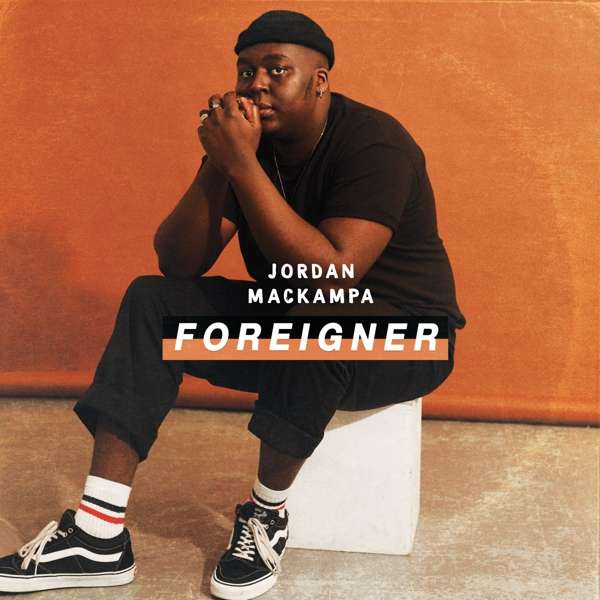
Thank you for meeting us right before your show – how do you feel before going on stage?
You know what’s funny, I feel really bad for other artists sometimes, because I’m not someone who gets stage fright. I’m so excited to play the show every single time. There isn’t an ounce of nerves that hits me. It’s a blessing and a curse. I have friends who get horrible stage fright and ask me, “Why can’t I get some of your confidence”? But the way I see it: If you’re prepared and you’ve done your job properly in terms of getting your mind ready, eating the right things and preparing your voice, then you’ve got nothing to worry about. Once you’re on stage, whatever happens, happens. I’m trying to control what I can and don’t stress about the things I can’t control.
Do you feel the same when you put out new music?
Oh, no! When I’m putting out music, I’m way more nervous. On stage: nothing. When I’m about to put out an EP or a single, I’m so nervous. Particularly, because the last songs I put out, they’re going to be on the album that is coming out next year. Some of those songs, I have sat on for two, three or four years and people are only hearing them now. That’s what makes me nervous. To see what peoples’ responses are going to be to songs that I’ve been listening to on my own for absolutely ages.
At what stage are you with the recordings for your debut LP?
It’s done! It’s been done for almost a year and a bit now. We went back and forth on the mixes over the span of six or seven months, got it mastered, got the digital art ready, got the cover art, got the writing on the back, the credits… It’s so ready to go, I’m ready to put it out tomorrow.

Your first EP was released in 2016, the album has been ready to go for a while now, what took you so long?
I’m very much a believer in the fact that what is meant to happen for you, won’t pass you by. It’s going to come, but at the right time. I believe in timing, in not rushing anything. You’ve only got one chance to release your first album and I wouldn’t want to put it out too early and feel that it’s incomplete. To me, my first album is perfectly imperfect. I know what I would have done, listening back to it for so long. I would have changed some things. But I also know that I wouldn’t change it for the world. I poured my absolute heart and soul out into this album and every song means so much to me. It’s my first album, it’s my baby.
So, it’s a classic debut record, a collection of your best songs over the years?
Essentially, yes. The album doesn’t necessarily follow a theme. To me, it’s ten really good songs that I have enjoyed writing and playing and singing and I want people to listen to.
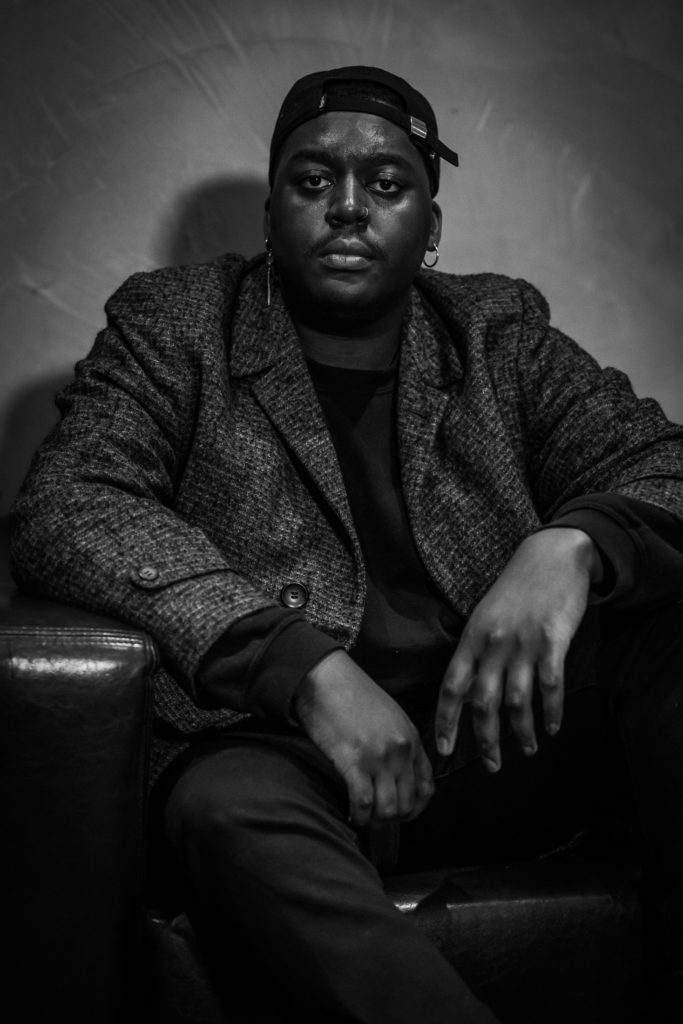
Let’s talk about the title of your album – Foreigner. That word bears quite a lot of connotation and emotion. What does it mean to you: being a foreigner?
The name Foreigner comes from one of the tracks of the album. To me, probably the most important track. The song speaks about feeling like an outcast and a stranger when you come from one place and have to settle into another. You don’t necessarily look like anyone else; you don’t sound like anyone else. Particularly in the UK, where people make you feel like you don’t belong there. I guess, it happens everywhere, but it was something I felt, when I first moved to the UK with my mum when I was very little: not being wanted by anyone there. And I wrote Foreigner for everyone thinking in two different languages or thinking in one language and responding in another. You’re trying to find a balance and it’s not always going to be fifty-fifty. And I wrote this song for those people finding themselves between two languages or two cultures. To tell them: I see you. I know your sorrow, because I myself have been through it. I feel that I haven’t heard a song that speaks about it. So, I wanted to make a song that says, “I get it”.
You once mentioned that due to your Congolese upbringing even writing music in 4/4 beats feels like a translation process. Do you feel like you’re writing off-beat?
Constantly! I constantly feel like I’m writing in some polyrhythm or singular beat that isn’t necessarily on all the time. I feel like I’m ever so slightly behind or forward. I guess that comes from listening to Congolesean music ever since I was a child. That kind of swing is very much reflected in my music. I know exactly when I’m on and off the beat.
Do you think that the different perspectives on music and identity also allow you to see your personal vision clearer, because you’re not so bound into one direction?
I feel as though I have a lot of freedom in order to explore melodies and sounds. Maybe more so than someone who was born and bread here. They have not been exposed to the sounds that I have been exposed to from a very young age. I guess, it gives me some advantage and flexibility. But I don’t try and put my sound into a box, I just make music that makes me happy.
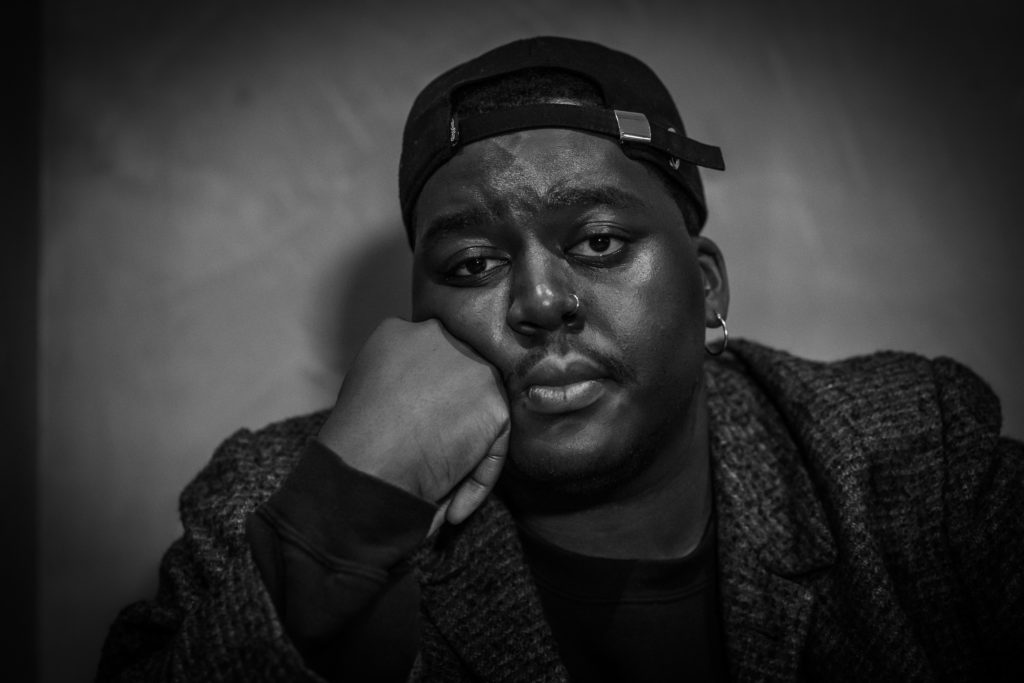
About boxes of sounds: When I prepared for this interview, I found your music listed as pop music a lot. You described it as a mixture of modern folk, classical soul, and blues. Would you still sign that?
Absolutely. For anyone that’s describing my music as pop, I feel like they have to come to one of my shows. It’s definitely not pop! I guess, it’s pop in the sense of popular, but I definitely don’t make Katy Perry Pop. As much as I would love to, maybe one day, but right now, it’s definitely not where I’m at.
Your music is a market niche: Do you feel pressure to make it commercially successful or does that again give you some freedom to explore more?
I don’t necessarily feel pressured to make my music more commercially accessible. I feel as though if you make good music, then people will find it and it will be become commercially accessible. People will talk about it, share it, bring their friends… Once the news is out that you made a song and people like it, that’s where the commercial success will come from. I don’t sit down and think that I need to make a song for the radio. What I intend to do is to splurge out my emotions on a piece of paper and deconstruct it from there.
Would you say that your sound changed over the years?
My sound definitely changed. Let’s say, the release of Same Faces to a song like Teardrops in a Hurricane – those two songs to me are polar opposites. There are similarities in polyrhythms, the kind of melodies and harmonies I use. But I was in a different headspace with Same Faces in 2016. Teardrops in a Hurricane came out in 2017. I feel like they both reflect me, but at different points of my life.
You evolve as a person and the sound follows?
Yes, I feel like that’s the case for a lot of musicians. One just follows the other.
In Atwood Magazine you said that in 2019 you were trying to get a new imagine as an artist. How? What’s the new focus or aesthetic?
I guess, it was probably just the idea that I’m someone who is living the balance between two cultures, I’m an LGBTIQ alley, I’m a proud black man living my best kind of carefree life. That’s the aesthetic I’m trying to put out, I don’t want to make myself come across as anything I’m not. I’m just trying out this sense of genuineness – if that’s even a word. It’s the idea that if there’s someone out there, who wants to speak with me or who wants to share their story or their troubles with me, they can. I’m someone who believes in creating safe spaces for people. I’m always trying to emphasize that at every single one of my shows. It is a safe space to be exactly who you want to be without fear of judgement or hatred. As far as I’m concerned, all my friends are lovely. They wouldn’t dream of spreading any kind of discrimination or hatred. If you come to my shows, you’re going to be treated with respect and you’ll be shown love.
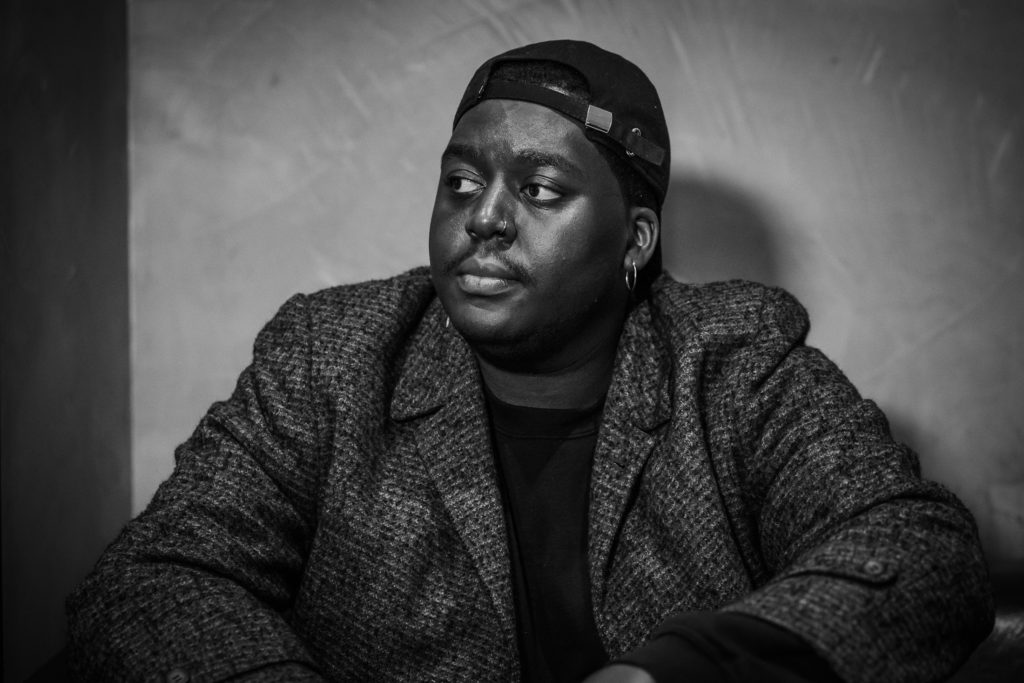
Your music speaks to the experience of many people, do you think it also lives from the genuineness you were talking about and is therefore relatable?
I constantly get people telling me how much my music means to them and I say, “You have no idea how much you’re changing my life by just clicking one song”. It’s unreal to know that there’s someone in Indonesia listening to my songs and feeling understood. That’s what I want from my music, I want to be listened to, I want to be understood, in the hopes that there’s someone out there, who understands what I went through and feels the same. Or is willing to listen to my story without any judgement.
Growing up, did you have anyone like that? Artists who gave that to you and now you want to pass it on?
Puh…
Or do you want to fill a gap?
I feel like I want to be the person to fill the gap. I’m not saying that I haven’t been inspired by some incredible artists and musicians, but there wasn’t anyone like me making the music that I wanted to make. So, instead of wishing for somebody else to make it, why not it be me?
By doing that you’re quite exposed in a sense. Do you feel vulnerable?
Yeah, it definitely feels that way sometimes.
But it also has a strong side?
I feel a beautiful chemistry between how much vulnerability you allow yourself and others to see and hear from you. I’m incredibly expressive and vocal with my emotion and about mental health, how my career is going and how things are affecting me. And there’s probably someone out there who was feeling what I did or is feeling it now but hasn’t had the voice to get it out. Vulnerability has a strength in it, but it can also be your downfall. I’d say, just be careful who you’re being vulnerable to. There are people that take advantage of your vulnerability and assume you’re this incredibly nice guy, who won’t harm a fly. But, fool me once – shame on me, fool me twice – absolutely not, you’re not going to get the chance.
Being someone, people identify with, not only comes with an emotional side, but also with responsibility. You write political songs, I’m thinking of the song What Am I, for example. Do you feel that art should be political — has a responsibility to be political?
Absolutely. I feel that any artist with a platform, should be using their voice to speak out about anything they believe in: if it’s politics, or religious issues, LGBTIG issues, women’s rights, queer rights, literally anything. If you have a platform and you have a voice and people are listening to you, it doesn’t matter if it’s 3 people or 3.000 people. If you know that you can do something that not necessarily changes their minds, but at least puts an opinion on the table for somebody to listen to; if you can do that, do it! Always use your platform for the sake of good. Always!
Perfect closing words – thank you again for the interview!
Jordan Mackampa Tour:
17.05. Club Bahnhof Ehrenfeld, Köln
19.05. Silent Green, Berlin
20.05. Zoom, Frankfurt
21.05. Feierwerk, München






